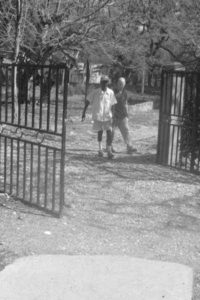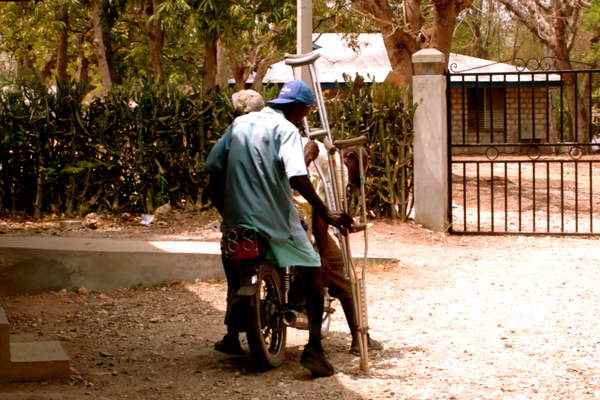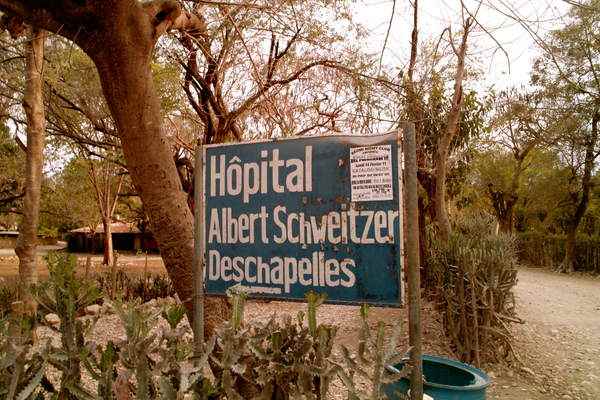
The Herald Gazette: Deschapelles, Haiti — A physical therapist from Camden put his skills to work at an amputee clinic in Deschapelles, Haiti from March 31 to April 9. Mike Rich volunteered on behalf of Physicians for Peace, an international nonprofit that sends physical therapists and doctors to areas of need.
The clinic, located on the grounds of the Hopital Albert Schweitzer in Deschapelles, Haiti was a collaboration between the hospital, PFP and Hanger Prosthetics. His mission was funded in part by a grant from ChildFund International in Richmond, Va. Deschapelles is a three-hour drive from Port au Prince.
The magnitude 7.0 earthquake and the subsequent 5.9 magnitude aftershock in January 2010 left more than 4,000 Haitians in need of prosthetic limbs.
Situated in the Artibonite Valley, Deschapelles is a three-hour drive from Port au Prince, initially along the coast and then through the mountains. The Artibonite region was the area most affected by the cholera outbreak that was confirmed in Haiti in October 2010. Several of Rich’s housemates were from the Centers for Disease Control and were concluding their study and research of the outbreak. Others who resided at the same housing complex included a pediatrician from New York, a pediatric resident form Germany and physical therapists from Canada and Switzerland.
“Natural disasters certainly don’t discriminate,” Rich said in a news release. “The patients that came through clinic during my time in Deschapelles ranged in age from 8 to 68. The good news is that about 16 people came to the clinic missing a leg or arm and in one case, two legs, and left ambulating on their new leg(s).Having the prosthetists on sight allowed us to compress the rehab time considerably.

“Patients were brought to the clinic from Port au Prince or Gonaives for instance, and stayed in a nearby building where they were fed and transported back and forth to the clinic on the back of a motorcycle two at a time. The patients stayed in clinic for the entire day.
“Haitian terrain is rough and rocky, so once we got the prosthesis fitting properly, we spent considerable time training on the day to day surfaces these patients would encounter. After about five days at the clinic the patients went home via a tap-tap. A tap-tap is any vehicle capable, and in some cases maybe not so capable, of transporting several people. They are often brightly colored. So when the tap-tap shows up at clinic you know you are getting more new patients and the others are going home.”
Rich sees his time in Haiti as 10 days of instant gratification and has signed up to return to the same clinic later this year.
Physicians For Peace is a founding member of the Haitian Amputee Coalition, a confederation of organizations including Albert Schweitzer Hospital, The Hanger Ivan B. Sabel Foundation, the Harold and Kayrita Foundation, among others. For more information on PFP and their work in Haiti, visit physicians for peace.org.
